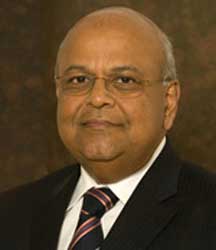
This is a rise of R3.6bn over the figures to the end of June is a further sign of the depth of consumer indebtedness. This is of concern to the government‚ which has devised a multipronged strategy to alleviate it. Details of the strategy were released last week by Finance Minister Pravin Gordhan and Trade and Industry Minister Rob Davies.
The imposition of e-tolls is expected to add further pressure to household budgets. According to a report released by the Treasury‚ the government was responsible for 4%‚ or R3.6bn‚ of the outstanding municipal debt‚ while households accounted for 57% (R51.4bn).
The report noted that R52.5bn was owed to metros at end-September. "The City of Johannesburg is still owed the largest amount at R17.6bn‚ followed by Ekurhuleni Metro at R9.8bn‚ Cape Town at R6.4bn and City of Tshwane at R6.1bn‚" the Treasury said. "Secondary cities were owed R16.4bn."
On the other hand‚ debt owed by municipalities amounted to R16.4bn as at end-September‚ an overall decrease of R1.6bn compared with the R18bn reported at the end of June.
The report highlighted that current revenue collection had fallen behind budgeted targets. It warned that this posed a significant risk to the cash and liquidity position of municipalities‚ as planned expenditure is based on collections.
According to the report, the reasons that collected revenue that is lower than billed revenue include the affordability of municipal services, the impact of the economic slowdown and the substantial increase in tariffs as a result of higher prices for fuel‚ water and electricity.
The aggregated year-to-date collection rate is 84.1% compared with a budgeted collection rate of 94.5%.
The Free State still has the highest percentage of creditors outstanding for more than 90 days at 60.8%‚ followed by North West at 56.7% and Limpopo at 51.7%. "The year-on-year increase in outstanding creditors could be an indication that municipalities are experiencing liquidity and cash challenges‚" the Treasury said.
Total municipal borrowings as at end of September were R51.9bn‚ including long-term loans of R36.3bn‚ short-term marketable bonds of R10.1bn‚ long-term marketable bonds of R4.3bn and other short-and long-term loans of R1.1bn.
The Treasury says that municipalities continued to face difficulties in starting their infrastructure projects in the first quarter. The reasons for this include delays in the project registration process by national government and municipalities; a lack of project management; lack of capacity; delays caused by contractors and poor budgeting.